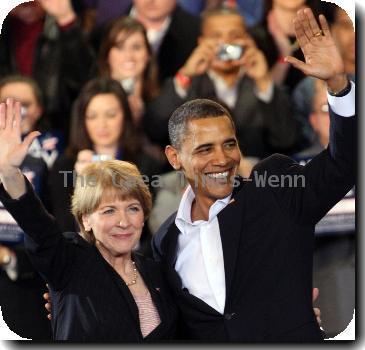Soros: Obama moved too soon in call for big bank regulations
By Edith M. Lederer, APWednesday, January 27, 2010
Soros: Obama too quick on bank regulation call
DAVOS, Switzerland — Billionaire financier George Soros said Wednesday that President Barack Obama’s call for tough regulations on big banks is too soon because the economy is not “out of the woods.”
Soros said that imposing new taxes on banks goes against the policy the U.S. government is pursuing, which is to do “everything to help them earn their way out of a hole.”
He told a luncheon on the sidelines of the World Economic Forum that he is “very supportive” of Obama’s plan to curb the size of banks, but the timing is wrong and he doesn’t think it goes far enough.
The huge amounts of credit that the U.S. government poured into the banks has stabilized the markets, Soros said. “The concerted international stimulus got the world economy going again” and the banks are paying back their bailouts “at a really remarkable rapidity.”
“But the way the rescue was organized, I’m afraid, created a lot of political resentment because instead of injecting capital into the banks at the equity level, the decision was made that this would be somehow politically unacceptable,” he said.
French President Nicolas Sarkozy called for tighter banking regulation at the World Economic Forum on Wednesday, telling the room full of international bankers and CEOs just what they didn’t want to hear: Brace for bonus curbs and new bookkeeping rules.
It was a brazen posture for the World Economic Forum, echoing rallying cries of workers from the U.S. to Europe and Asia. Many in the crowd — including those whose companies are starting to recover after a crushing year — bristled at Sarkozy’s keynote speech, calling it simplistic and populist.
U.S. taxpayers, who carried the financial burden, were outraged when the banks’ management decided to reward their employees with bonuses for the “windfall profits” they received, which created “a political storm,” Soros said.
“That actually has led now the Obama administration to first of all to impose taxes and to talk about the reorganization of the system, as will be necessary,” he said.
“This development came too soon because we are not out of the woods,” Soros said.
From an economic point of view, he said, first the banks have to pay back the credit they received and then “you have to drain the surplus liquidity from the economy, reduce the budget deficits, etc., to bring things under control.”
Soros said this phase isn’t finished yet and the tough measures Obama proposed to rein in the banks are “directly counterproductive and will probably make the banks more cautious about lending.”
“So the timing of it is wrong and really there is no urgency of introducing these long-term reforms,” he said.
“The task ahead — and I don’t think this is fully realized — is not to restart the economy and the financial system,” Soros said. “You actually have to create a new system because the old system has broken down.”
The financial meltdown made it clear “that markets cannot be left without regulation — you need global regulations,” he said.
Soros stressed that “it’s more important to get the legislation right than to do it in a hurry.”
“I think it would be extremely important to depoliticize it, to get some expert groups designing the global regulatory system that would then be adopted,” he said.
The G-20, representing the world’s wealthiest nations, has taken the lead and asked for a report, he said.
Obama has tried to sell his financial changes in part by saying they would end the era of “too big to fail” and prevent future Wall Street bailouts.
Soros said Obama’s plan “protects the commercial banking sector by moving them out of speculating for their own account.”
“But you then still have the financial markets, and I think some of the banks will spin off their investment banks, and those investment banks will be very substantial and they will be too big to fail,” he said.
“So the too big to fail problem still remains,” Soros said.
The administration’s claim that the era of “too big to fail” is over won’t be credible “until the authorities over a period of years demonstrate that they actually allow some institutions to fail,” he said.
In the meantime, Soros said, “they have to be kept under much closer regulatory provision, (with) capital requirements.”
Tags: Barack Obama, Davos, Europe, Events, Government Regulations, Industry Regulation, North America, Switzerland, United States, Western Europe, World Economic Forum Annual Meeting, World Economic Forum Annual Meeting 2010

